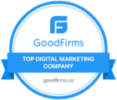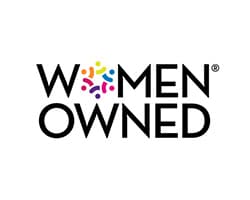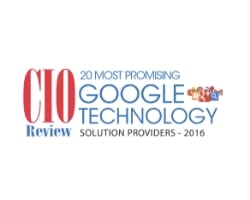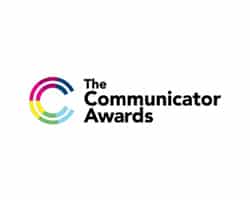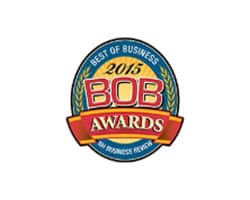Since it first began shaking things up in 2020, the COVID-19 pandemic inspired us as a society to change the ways we interact, but it also sparked changes in the way we consume. As a result, technology companies and their marketing teams are tasked with keeping up with customers and their ever-evolving identities and preferences on how they receive, engage with, and hopefully buy products or services. Luckily, there are three major technology marketing trends that are sure to boost your technology sales in the post-pandemic market that you can follow to stay ahead.
1. Incorporate AI
Your technology marketing strategy most likely already employs some form of artificial intelligence, and in 2022 your company should aim to expand your use of the technology to boost consumer engagement and streamline your customer service. Many consumers are looking for the most pain-free, user-friendly technology and e-commerce experience possible, and utilizing AI to meet this need is sure to boost your technology sales and make your online technology marketing plan successful. One of the most revolutionary ways this can be done is through the introduction of a cross-device compatible virtual assistant that is exclusive to your products, such as Amazon’s Alexa ® or Apple’s Siri ®. The introduction of this multitasker-friendly technology excites customers, and immediately plays into addressing a common, everyday need. Your marketing team can harness the introduction of your virtual assistant by immediately highlighting the convenience and seamlessness that it brings to users’ lives.
On top of the initial introduction of your AI virtual assistant, there are many different avenues you can take as a marketing team when it comes to cohesively incorporating the technology into your overall brand and customer experience. One of the best ways to boost your technology sales, customer service ratings, and your brand’s customer service experience all in one is by integrating your virtual assistant into your website and app platforms, but also by building it into the technology itself. For example, if your technology firm specializes in security system technology, integrating your brand’s virtual assistant allows for more streamlined troubleshooting of the products themselves. Likewise, being able to control the technology with ease using your technology firm’s virtual assistant to conduct basic functions such as powering on and off or engaging certain settings makes your technology instantly more desirable than competitors who have yet to develop and market similar technologies.
In addition to marketing control features using your virtual assistant in your technology, you may want to begin highlighting its other conveniences, such as customer service and troubleshooting. Being able to market your products as being self-reliant enough to troubleshoot and access customer service via virtual assistance without a secondary device will set you apart from your competitors. As a marketing team, you can really emphasize the convenience it brings to your customers, focusing on how much time and energy your technology users can save on product installation, setup, operation, and everything in between.
2. Focus on Customer Customization
Along with increased automation and the use of self-sufficient virtual assistants, the post-pandemic consumer is increasingly more concerned about their safety and privacy while incorporating new technology into their spaces. Positioning your technology firm as being the best of the best when it comes to user privacy and safety can be tricky, and to do so correctly, you must be able to properly identify your customers’ most common and frequent concerns when it comes to your technology
Although technology has been society’s most valuable tool for staying connected and maintaining some form of in-person operation throughout the pandemic, consumers are more concerned about their privacy online than ever. It has been found that 55% of Americans have stopped using a website or technology product due to privacy concerns. To counteract these general privacy concerns with your technology marketing strategy, it is crucial to highlight all of your core privacy and safety features. Depending on the type of technology your firm produces, your users’ security and privacy concerns will vary. If your technology involves any type of monetary transactions, you are going to need to focus on the measures your technology firm takes to protect your users’ financial credentials. Similarly, if your technology is used to transmit sensitive information such as medical or law enforcement records, chances are your customers are going to prioritize their privacy and the security measures against external breaches or hackers that you have in place.
The best place to begin your research into your customer’s main security and privacy concerns is by listening to feedback and comments from your current and previous customers, as well as the inquiries and interests of potential customers. As a technology firm, your marketing team once again has the advantage of being able to integrate their technological marketing research into your products themselves. This can be done by prompting users to take surveys or give feedback within the technology itself which allows your marketing team to gather feedback and inquiries from users in the event of troubleshooting, non-operation, and many other critical moments during its use. The constructive feedback provided by your customers can then be used to better tailor your technology’s privacy and security measures to satisfy your customers’ needs and concerns.
3. Stand Up for a Cause
Aside from the most modern technology and the safest privacy and security measures, most technology customers are looking to contribute to a company that stands up for a cause. Studies have shown that 77% of consumers are more inclined to do business with companies who have pledged commitment to bettering the world in at least one capacity, whether that be on the environmental or social justice front, or one of the many issues local to the communities in which they do business. Similarly, 55% of American consumers believe that it’s important for companies to voice their stance on social, environmental, and political issues – something there is no lack of in the post-pandemic world. As a result, your technology marketing team can make a lasting impact when it comes to incorporating your views and standpoints on key causes.
However, establishing your stance as a technology firm on controversial or highly debated topics can backfire if done so incorrectly. As a company, you must be aware of the line between supporting and bringing awareness to social and environmental issues and their causes, without exploiting the subject for your corporate gain. To stay on the right track when it comes to your technology marketing strategy, it is important to take social issues as seriously as your potential customers do and think beyond the goal of trying to boost your technology sales; do your research and consult topic experts before vocalizing or establishing where you stand on a controversial issue.
In addition to simply establishing your technology firm’s standing and opinions on social and environmental issues and causes, you can also explore partnerships and collaborations with various social and environmental change organizations to aid or support their efforts. This can be done by providing technology to aid their campaigns, financially sponsoring groups or events, and the nature of your partnerships will vary depending on the type of technology your firm deals with.
Moving Forward from the Pandemic
As we move further and further forward from the start of the global pandemic, every industry is looking to innovate and improve their marketing strategies to stay ahead of the competition. As a technology firm, incorporating these three key marketing tools into your technology marketing strategy is a surefire way to boost your technology sales and set your tech company apart from the rest. By harnessing and advertising your AI features and highlighting how beneficial they can be to your customers, you are setting a standard of luxury and modernization that clients can only find with your firm. Likewise, another excellent way to engage and retain customer engagement with your technology marketing efforts is by fortifying your privacy and security features and updating them to meet your clients’ evolving concerns and needs. Finally, showing your customers that your firm does good, and plays a part in bettering the community and world around you is a great way to humanize your firm’s values while also giving back in a positive manner. The 2022 consumer is multi-dimensional, and your technology marketing strategy will need to be leveled up to stay current. If you are unsure about the next best step for your technology firm, reach out to an experienced, professional technology marketing agency such as the experts at Millennium Agency.
About Millennium Agency
Millennium Agency is a nationally recognized, top woman led B2B branding, positioning, and digital marketing firm who knows how to create value that emotionally influences your customer’s buying decision, giving you the competitive advantage. As your trusted partner in B2B software technology and manufacturing, we provide the branding and positioning framework that make an impact – so you can focus on what you do best – run your business successfully. With offices in Boston and New Hampshire, and a worldwide presence, the professionals at Millennium Agency would like to learn more about your business. Visit www.mill.agency or book time here.








